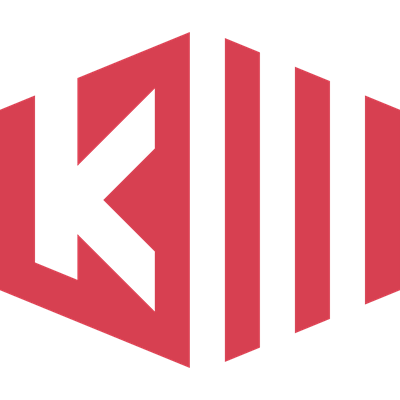fair trade
fair trade
English Definitions:
fair trade (noun)
trade that is conducted legally
fair trade (noun)
trade that satisfies certain criteria on the supply chain of the goods involved, usually including fair payment for producers; often with other social and environmental considerations
fair trade (Noun)
A system of trading promoting more equitable global trade, especially to sellers and producers in poorer areas, but also to the environment.
Fair trade
Fair trade is an organized social movement that aims to help producers in developing countries to make better trading conditions and promote sustainability. It advocates the payment of a higher price to exporters as well as higher social and environmental standards. It focuses in particular on exports from developing countries to developed countries, most notably handicrafts, coffee, cocoa, sugar, tea, bananas, honey, cotton, wine, fresh fruit, chocolate, flowers, and gold. There are several recognized Fairtrade certifiers, including Fairtrade International, IMO and Eco-Social. Additionally, Fair Trade USA, formerly a licensing agency for the Fairtrade International label, broke from the system and is implementing its own fair trade labelling scheme, which has resulted in controversy due to its inclusion of independent smallholders and estates for all crops. In 2008, products certified with Fairtrade International's Fairtrade certification amounted to approximately US$4.98 billion worldwide, a 22% year-to-year increase. The Fair trade industry does not reveal how much of this is the extra price charged for Fairtrade goods, or how much of the extra price reaches the producer. Fairtrade branding has extended beyond food and fibre, a development that has been particularly vibrant in the UK where there are 500 Fairtrade Towns, 118 Fairtrade universities, over 6,000 Fairtrade churches, and over 4,000 UK schools registered in the Fairtrade Schools Scheme.
Fair trade
Fair trade is a term for an arrangement designed to help producers in developing countries achieve sustainable and equitable trade relationships. The fair trade movement combines the payment of higher prices to exporters with improved social and environmental standards. The movement focuses in particular on commodities, or products that are typically exported from developing countries to developed countries but is also used in domestic markets (e.g., Brazil, the United Kingdom and Bangladesh), most notably for handicrafts, coffee, cocoa, wine, sugar, fruit, flowers and gold.Fair trade labelling organizations commonly use a definition of fair trade developed by FINE, an informal association of four international fair trade networks: Fairtrade Labelling Organizations International, World Fair Trade Organization (WFTO), Network of European Worldshops and European Fair Trade Association (EFTA). Fair trade, by this definition, is a trading partnership based on dialogue, transparency and respect, that seeks greater equity in international trade. Fair trade organizations, backed by consumers, support producers, raise awareness and campaign for changes in the rules and practice of conventional international trade.There are several recognized fair trade certifiers, including Fairtrade International (formerly called FLO, Fairtrade Labelling Organizations International), IMO, Make Trade Fair, and Eco-Social. Additionally, Fair Trade USA, formerly a licensing agency for the Fairtrade International label, broke from the system and implemented its own fair trade labelling scheme, which expanded the scope of fair trade to include independent smallholders and estates for all crops. In 2008, Fairtrade International certified approximately (€3.4B) of products.On 6 June 2008, Wales became the world's first Fair Trade Nation; followed by Scotland in February 2013. The fair trade movement is popular in the UK, where there are over 500 Fairtrade towns, 118 universities, over 6,000 churches, and over 4,000 UK schools registered in the Fairtrade Schools Scheme. In 2011, more than 1.2 million farmers and workers in more than 60 countries participated in Fairtrade International's fair trade system, which included €65 million in fairtrade premium paid to producers for use developing their communities.Some criticisms have been raised about fair trade systems. One 2015 study concluded that producer benefits were close to zero because there was an oversupply of certification, and only a fraction of produce classified as fair trade was actually sold on fair trade markets, just enough to recoup the costs of certification. A study published by the Journal of Economic Perspectives however suggests that Fair Trade does achieve many of its intended goals, although on a comparatively modest scale relative to the size of national economies. Some research indicates that the implementation of certain fair trade standards can cause greater inequalities in some markets where these rigid rules are inappropriate for the specific market. In the fair trade debate there are complaints of failure to enforce the fair trade standards, with producers, cooperatives, importers, and packers profiting by evading them. One proposed alternative to fair trade is direct trade, which eliminates the overhead of the fair trade certification and allows suppliers to receive higher prices much closer to the retail value of the end product. Some suppliers use relationships started in a fair trade system to autonomously springboard into direct sales relationships they negotiate themselves, whereas other direct trade systems are supplier-initiated for social responsibility reasons similar to a fair trade systems.
Citation
Use the citation below to add this dictionary page to your bibliography:
Style:MLAChicagoAPA
"fair trade." Kamus.net. STANDS4 LLC, 2024. Web. 23 Oct. 2024. <https://www.kamus.net/english/fair+trade>.


Discuss this bahasa indonesia fair trade translation with the community:
Report Comment
We're doing our best to make sure our content is useful, accurate and safe.
If by any chance you spot an inappropriate comment while navigating through our website please use this form to let us know, and we'll take care of it shortly.
Attachment
You need to be logged in to favorite.
Log In